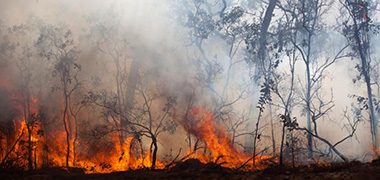
This role has a moderate level of AI exposure. AI can enhance efficiency for some tasks, but this job still relies on human skills and decision-making.
Explore all careersA Conservation Scientist studies and protects ecosystems by managing habitats, monitoring wildlife, and developing strategies for biodiversity preservation.
Get qualified to work as a Conservation Scientist with a course recognised across Australia. Speak to a training provider to learn more.



Browse occupations related to Conservation Scientist



If you are looking to advance your career in environmental stewardship and play a pivotal role in preserving Victoria's rich biodiversity, consider enrolling in one of the esteemed Conservation Scientist courses in Victoria. These advanced courses are designed for experienced learners who possess prior qualifications or work experience in related fields. Whether you are drawn to marine ecosystems, environmental science, geography, or conservation biology, there is a course tailored to your professional aspirations.
One of the prominent offerings is the Bachelor of Science (Marine Biology). This course explores the intricate relationships within marine environments and equips you with the knowledge and skills to contribute to aquatic conservation efforts in local regions like Port Phillip Bay and beyond. This program is crucial for those seeking to address the pressing challenges facing marine biodiversity.
Another exceptional option is the Bachelor of Environmental Science. This qualification focuses on the scientific principles necessary to understand and manage environmental issues. With climate change and habitat destruction posing significant threats to Victoria’s natural landscapes, this course prepares you to devise strategies that promote sustainability and ecological resilience.
For those interested in the spatial dynamics of landscapes, the Bachelor of Science (Geography) provides essential insights into geographical information systems, environmental monitoring, and spatial analysis. Understanding geographical patterns is vital for effectively managing Victoria's diverse ecosystems, from the Alps to the coastal regions.
Lastly, the Bachelor of Science (Ecology and Conservation Biology) offers a comprehensive curriculum that focuses on the principles of conservation biology and the ecological processes that sustain ecosystems. Graduates of this program will be well-equipped to tackle environmental challenges and engage with communities in Victoria to foster a culture of conservation. With four distinguished Conservation Scientist courses in Victoria available, you have the opportunity to make a meaningful impact on the future of our environment.